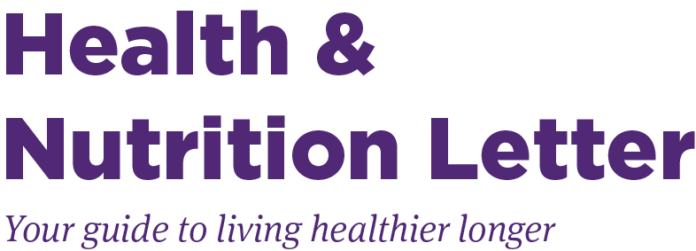There is No Proof Dietary Supplements Help Prevent CVD or Cancer
The U.S. Preventive Services Task Force (USPSTF) has released recommendations discouraging the use of vitamin and/or mineral supplements for the prevention of cardiovascular disease or cancer. The USPSTF concluded that:
The balance of benefits and harms cannot be determined for any vitamin or mineral supplements (including single, paired-nutrient, or multivitamin supplements) for the prevention of cardiovascular disease or cancer, so they are not recommended at this time
The harms of beta carotene supplementation outweigh the benefits with regard to prevention of cardiovascular disease or cancer
There is no net benefit of supplementation with vitamin E for the prevention of cardiovascular disease or cancer
In a national survey, 52 percent of U.S. adults reported taking at least one dietary supplement, and 31 percent reported using a multivitamin-mineral supplement. Since vitamins and minerals may have anti-inflammatory and antioxidative effects in the body, it has been proposed that they could help combat the inflammation and oxidative stress that play a role in both cardiovascular disease and cancer. Unfortunately, the USPSTF review found there are no data to back up this assumption at this time.
An Avocado a Day for Six Months Does Not Reduce Waist Circumference

Don’t count on avocados to help with weight loss.
Previous short-term clinical trials suggested regular avocado consumption may help with hunger, body weight, and fat around abdominal organs (visceral adiposity). A new multi-center, randomized, controlled trial does not support those findings. The study (which included researchers from Tufts’ Human Nutrition Research Center on Aging) gave participants with elevated waist circumference one avocado a day for six months. The control group continued consuming their typical diet. The avocado group showed no significant change in visceral adiposity compared to the control group, and there was minimal improvement in risk factors associated with cardiovascular disease or type 2 diabetes.
Visceral adiposity is associated with high LDL cholesterol and triglyceride levels, and greater risk of diabetes, high blood pressure, metabolic syndrome, and cardiovascular disease. While avocados are high in fiber and healthy fats and are a good source of potassium (which is involved in blood pressure control), simply changing any one food to your diet is unlikely to impact your body weight.
Microbial Transplant may Help Irritable Bowel Syndrome
The gut microbiome is an important player in our health, including gastrointestinal health. Scientists have been looking into the possibility of transplanting the gut microbes from healthy individuals to those with gastrointestinal illness to create a healthier, more health-promoting gut microbiome. Fecal microbiota transplantation (FMT) is a recognized treatment for antibiotic-resistant Clostridium difficile infection. It is now being explored as a promising treatment for irritable bowel syndrome (IBS).
A three-year study implanted either a placebo or 30 or 60 grams of feces from a healthy donor into the intestines of 125 participants with IBS. Improvement in symptoms and quality of life was significantly higher in the FMT groups than the placebo group, even two and three years after the transplant. This study suggests that FMT is a safe and effective procedure that may be a useful treatment for IBS.
Even Those at High Genetic Risk for Alzheimer’s May Benefit from a Healthy Lifestyle
A recent observational study suggests even people at high genetic risk for Alzheimer’s

Everyone can benefit from lifestyle choices, even if Alzheimer’s runs in your family.
Image
disease can benefit from a healthy lifestyle. The study followed over 11,500 people with an average age of 54 at baseline for over 25 years. Participants were scored on the American Heart Associations “Life’s Simple 7”—physical activity, diet, obesity, smoking, blood pressure, cholesterol, and blood sugar. This scoring system is designed as a way of measuring cardiovascular and brain health. Higher scores at mid-life were associated with lower dementia risk for participants with all levels of genetic risk. (The highest genetic risk group had at least one copy of the Alzheimer’s risk variant APOE4.) [Note that the sample size for participants with African ancestry was too small to adequately address the question, although the associations followed similar patterns as those with European ancestry.]
To protect your brain (and your heart), get moving, eat well, avoid tobacco products, get at least seven hours of sleep a night, and work to reduce stress, excess body fat, blood pressure, LDL cholesterol, and blood sugar levels, as necessary.
























